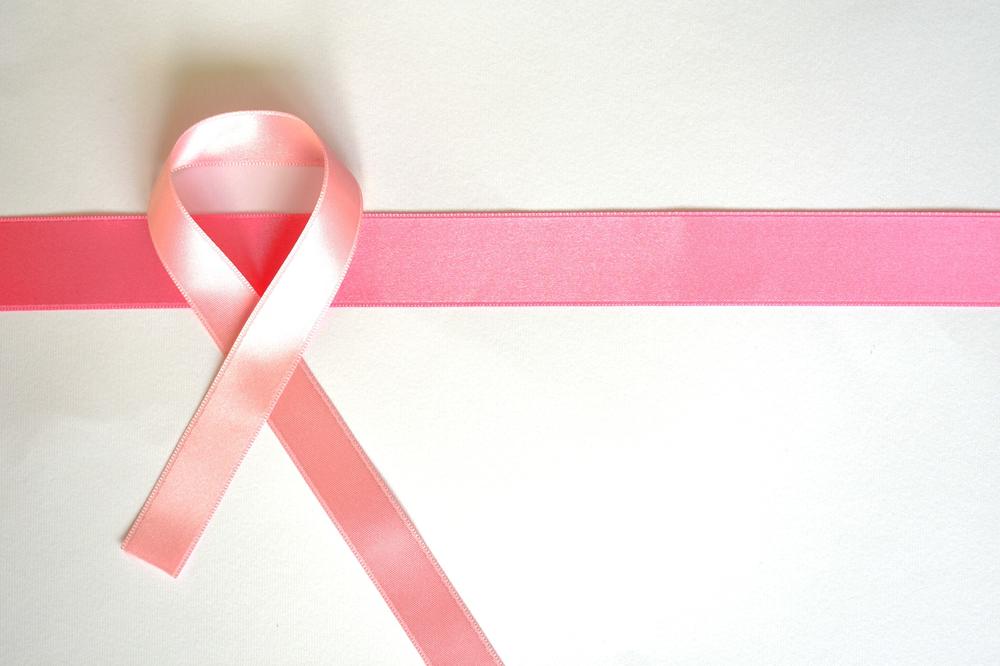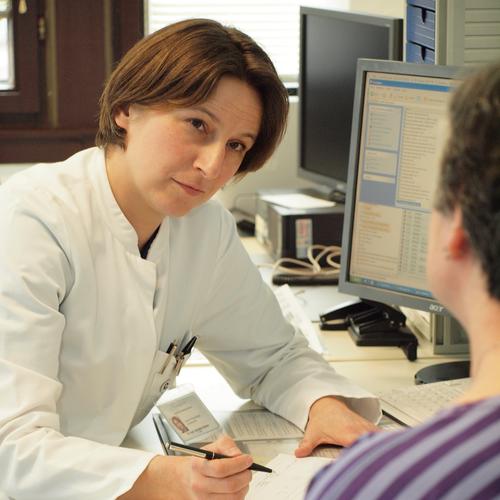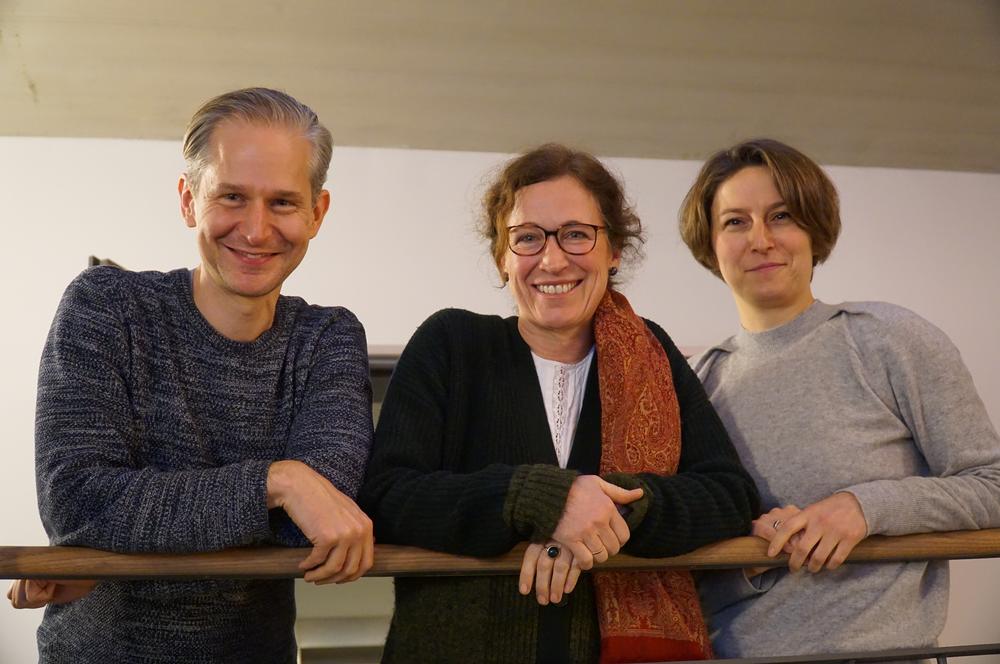iKNOW – What to do if your risk for breast cancer is high?
A research team at Charité – Universitätsmedizin Berlin and Technische Universität Berlin is developing an online consultation tool for women diagnosed with an increased risk of breast and ovarian cancer following a genetic test.
Jan 16, 2019
The pink ribbon is an international symbol for breast cancer awareness.
Image Credit: marijana1 / Pixabay (CC0 Creative Commons)
When a prominent actress had both breasts and later both ovaries removed prophylactically, this was not just an issue for the tabloid media. The so-called “Angelina Jolie effect” led to an extreme increase in the demand for tests for mutations in genes BRCA1 and BRCA2 in women with a family history of breast and ovarian cancer. “This is positive because there’s a lot you can do,” says Friederike Kendel, a medical psychologist at Charité. “However, there is also an increased demand for prophylactic operations on women without a positive genetic test result, which does not make medical sense. And many women worry unnecessarily.”
Up to ten percent of all breast cancers and up to 30 percent of all ovarian cancers are caused by mutations in these two genes. In rarer cases, they can cause tumors in other organs such as the stomach, intestines, or pancreas.
Gynecologist Dorothee Speiser conducts consultations with women with a hereditary predisposition at the Breast Center of Charité in Berlin.
Image Credit: Nanette Kalmbach
“It is important that those affected are fully informed of their risks and of their options.” Markus Feufel
How should and how can women behave when they learn that they are carriers of a high-risk mutation? Such a mutation triggers breast cancer up to the age of 80 with up to 70 percent probability, and ovarian cancer with about 40 percent probability. An eight-person team led by gynecologist Dorothee Speiser and Friederike Kendel from Charité, and ergonomist Markus Feufel from Technische Universität Berlin, is currently developing the online consulting tool iKNOW. On the one hand, it is intended to support doctors in educating women about their individual risk. Above all, however, it is meant to help those affected in understanding the risks and their options and to assess them realistically. The project will be funded by the Innovation Fund of the Federal Joint Committee (GB-A) with 740,000 euros for three years.
The starting point for iKNOW is the respective family tree. “If there is a relative who has suffered from breast or ovarian cancer before the age of 40 and there are other risk factors, a test is useful. The gynecologist will then refer their patient to a genetic counseling center,” explains Friederike Kendel. There, in a detailed consultation between the doctors and the patient, a decision is made as to whether or not a test is necessary. After the test, a new, individualized consultation takes place in which all available options are explained, depending on the test result.
In the event of a negative test result, the risk of suffering from genetic cancer is rather low and means relief for the patient. But what if the result is positive? “Then women often have only one thought in mind: ‘I’m going to get cancer!’ It is therefore all the more important that they are informed in detail about the risks and their options, that they have this information available, and can let it take effect beyond the discussion,” says Markus Feufel. In order to get an idea of the current situation, the ergonomist and his project colleague visited Dorothee Speiser’s office at Charité’s center for hereditary breast and ovarian cancer.
Ergonomist Markus Feufel, medical psychologist Friederike Kendel, and gynecologist Dorothee Speiser developed the consulting tool iKNOW. (from left to right)
Image Credit: iKNOW
“Experience has shown that many questions only arise after the consultation.” Friederike Kendel
“Will I get cancer? And if so, when and which kind? Can I actively do something about it? Should I have radical surgery right away? What are my chances of survival if I get sick? How do I talk about the test result with my partner, family, or friends? Experience has shown that many questions only arise after the consultation,” says medical psychologist Kendel. This is where iKNOW comes in.
The online application has a consultation mode in which the attending doctors can enter individual consultation contents according to the test result, and then activate additional program parts as required in the course of the conversation with the patient. Comprehensible information about gene mutations and the associated risks can be found there as well as explanations about the advantages and disadvantages of prophylactic operations versus close monitoring check-ups. Information about healthy lifestyles, persistent cancer myths, and recommended literature is also made available. Using their personal access code, patients can view or print this information online at any time from home via a secure point of access.
A mutation of the genes BRCA1 and/or BRCA2 means a patient has a “high lifetime risk” of suffering from breast and/or ovarian cancer. But what does this mean in concrete terms for a woman who, at the age of 30 for example, learns of a pathogenic mutation? What options does she have? “In my experience during observations, this is very individual and depends, among other things, on a possible desire to have children,” says Markus Feufel. The cumulative risk of falling ill is very high over the entire lifetime. “But if you look at how the risk changes over the next five or ten years, you get a completely different picture that can take some of the time pressure off. This too needs to be visualized,” adds Friederike Kendel.
Affected women should be empowered to deal with their fear of the illness.
Implementing and accompanying the iKNOW project requires a great deal of sensitivity because the scientists are primarily concerned with not unnecessarily upsetting women through technical knowledge. Rather, they should be enabled to deal with the fear of the illness.
How information is presented by the consulting tool also plays a role in this: the team around Dorothee Speiser, Friederike Kendel, and Markus Feufel will discuss not only the content but also the language complexity, the color concepts, and the visual and design languages in detail. User-friendly interfaces, understandable risk formats, and the technical implementation of iKNOW is the domain of the ergonomist in the project, medical expertise and the implementation in consulting is the domain of the gynecologist. The psychologist’s task is to empathize with the patient’s psyche and her psychosocial needs. For the interdisciplinary team, which meets weekly, the project itself is an educational process. “Different worlds meet each other. Sometimes we think we have already discussed things many times and then realize that everyone has their own understanding of a specific term,” says Markus Feufel. Friederike Kendel, too, sees the development process of iKNOW as a gain. “Psychologists have done their research – and doctors theirs. Essentially, we used to work side by side with each other. But now we’re really starting a dialog!”
By mid-2019, a prototype of the consulting tool should be ready and have been evaluated in a six-month study. A realistic perception and a more precise understanding of risk among those affected are the main concerns of the scientists. If the pilot phase is successful, iKNOW could be made available nationwide to centers for hereditary breast and ovarian cancer for routine medical care from 2020 onwards.



